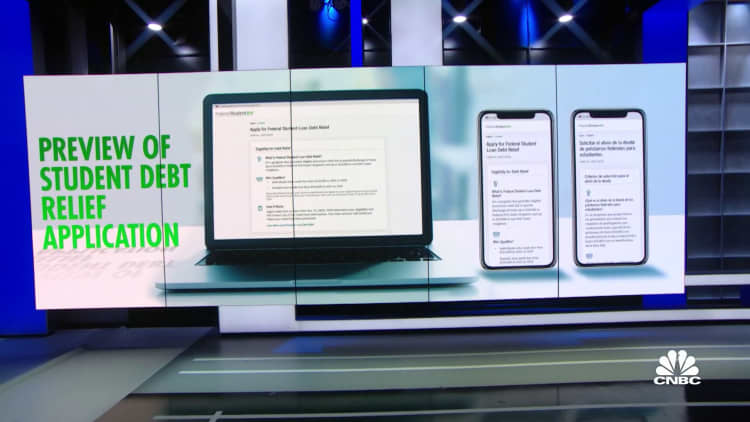The Supreme Court on Wednesday was asked to block the Biden administration’s student loan debt relief program, which is set to take effect this weekend.
The request by the Brown County Taxpayers Association in Wisconsin was directed to Justice Amy Coney Barrett, who is responsible for handling emergency application requests from the 7th Circuit U.S. Court of Appeals.
The White House did not immediately respond to a request for comment on the group’s request.
A federal judge in Wisconsin earlier this month dismissed the taxpayers association’s lawsuit challenging the program, ruling that the group did not have legal standing to block the plan.

The group then filed an appeal of that ruling to the 7th Circuit appeals court.
Wednesday’s request to Barrett asks that the plan by President Joe Biden to cancel up to $20,000 in student debt for millions of borrowers be suspended pending the outcome of the pending appeal.
The U.S. Department of Education opened its application for student loan forgiveness in a beta test on Friday.
More than 8 million people submitted requests for relief over that weekend.
The application officially launched on Monday. The Biden administration could start processing borrowers’ requests for student loan forgiveness as soon as this Sunday.
Legal challenges against student loan forgiveness
The legal challenges that have been brought against the president’s plan continue to mount.
Six Republican-led states — Arkansas, Iowa, Kansas, Missouri, Nebraska and South Carolina — are trying to block Biden’s plan, arguing that the president doesn’t have the power to issue nationwide debt relief without Congress. They’re also claiming that the policy would harm private companies that service some federal student loans by reducing their business.
The main obstacle for those hoping to foil the president’s action is finding a plaintiff who can prove they’ve been harmed by the policy. “Such injury is needed to establish what courts call ‘standing,'” said Laurence Tribe, a Harvard law professor.
Tribe said he isn’t convinced that any of the current lawsuits filed have successfully done that.
This is a developing story. Check back for updates.





Comments